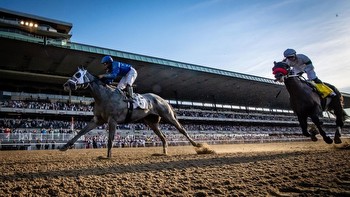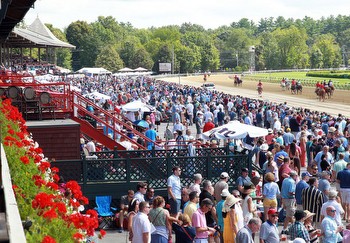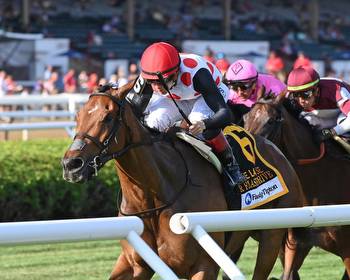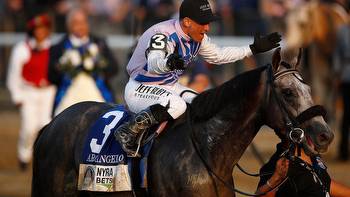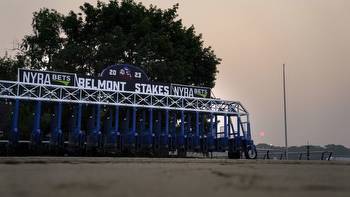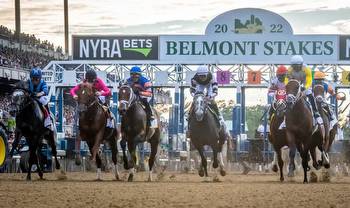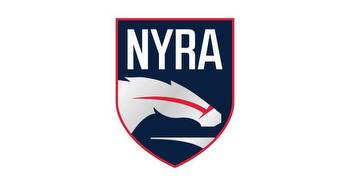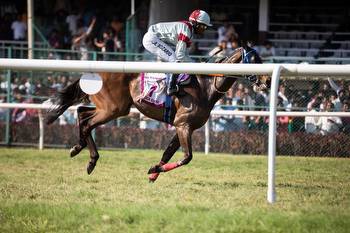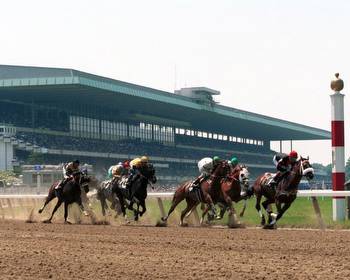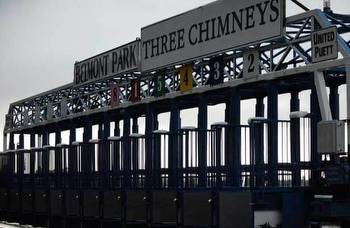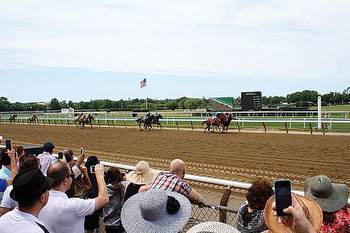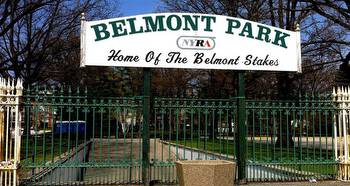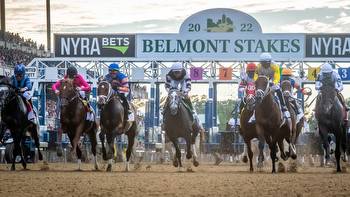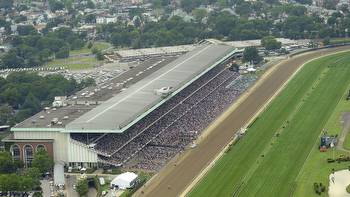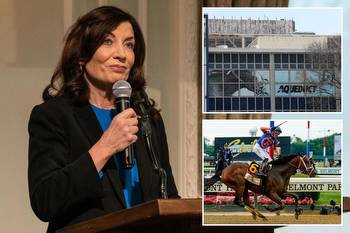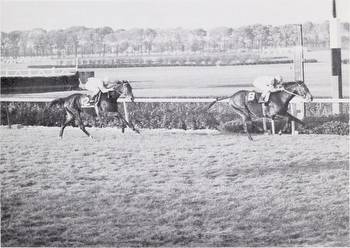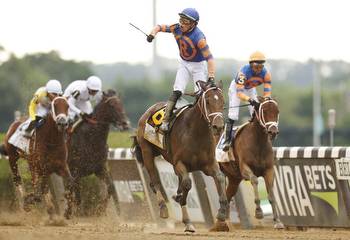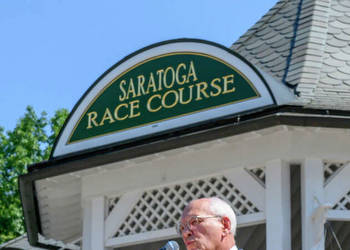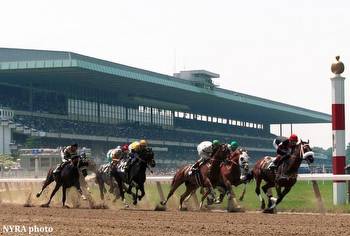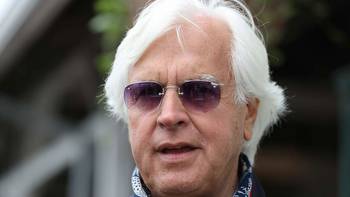$455M taxpayer loan for Belmont on track despite no local input
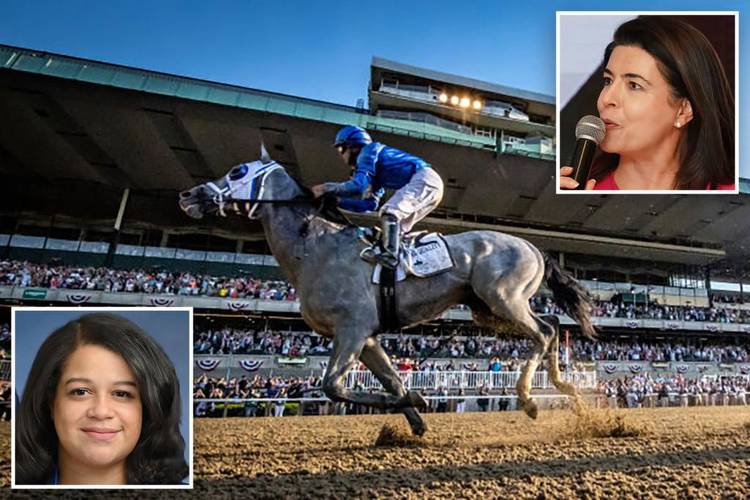
ALBANY — Lawmakers are backing a controversial $455 million, taxpayer-funded loan to modernize flagging Belmont racetrack even though a community advisory board empowered by state law has yet to even meet, The Post has learned.
Critics have accused Gov. Kathy Hochul and other supporters of keeping their blinders on as they race to get legislative approval in the state budget due April 1 for the purported “boondoggle” despite evidence suggesting Belmont might never generate enough revenue to service the loan.
A 2019 law passed with bipartisan support aimed to avoid problems with modernizing the aging facility by establishing a 15-member panel appointed by local elected officials, the New York Racing Association that operates the aging track and Queens Community Board 13.
“It’s a little shocking,” CB13 District Manager Mark McMillan, who was unaware the board has codified power to appoint someone to the advisory panel, told The Post Thursday.
A makeover for the Elmont-based venue could mean parking chaos in areas of Queens if the racetrack — which hosts the famed Belmont Stakes — can lure gamblers and racing fans back to the track, McMillan said while recalling spots locals already lose one day each year.
“We didn’t hear about something that we should be more involved in because we are the city agency that’s on the ground, grassroots, our membership comes from the community and is about the community,” he added.
Other locals question the fiscal wisdom of the project considering the decades-long drop in attendance — aside from the Triple Crown Stakes race — and the expanding gambling options, including multiple casinos slated to open downstate, for New Yorkers who had limited options like horse racing in the past.
NYRA stays afloat, in part, because state lawmakers have already diverted roughly $230 million in annual revenues from Video Lottery Terminals to its coffers.
But the state Senate and Assembly nonetheless already signaled they will support the loan, according to the budget resolutions they passed this week.
And then there are concerns about the ongoing damage done to the animals who race at Belmont, which could become one of the deadliest tracks nationwide if the loan gets approved, New York Focus reported earlier this week.
“They’re not being transparent [and] they’re not really seeking community involvement,” said John Di Leonardo, a zoologist who has lived near the track for decades.
“It’s just a farce,” he added.
Loan supporters say the COVID-19 pandemic delayed the establishment of the advisory board while claiming that elected officials like Assemblywoman Michaelle Solages (D-Elmont) – who sponsored the 2019 law with ex-state Sen. Anna Kaplan (D-Nassau) and NYRA — have done significant outreach to local stakeholders.
Just because the board has yet to meet does not mean it cannot offer input as the project moves forward, Solages said while downplaying the significance of the fact that the board her own bill established in 2019 has yet to convene.
“Over the past year, NYRA has held numerous direct meetings with various local community groups, and I have had the opportunity to participate in several of these meetings,” Solages said.
Kaplan did not return a message seeking comment.
A NYRA spokesman provided a list of 10 past events in 2022 and 2023 with community groups and government bodies affected by Belmont while noting NYRA, which appointed three members to the advisory board, would “assume responsibility” for convening the panel moving forward.
“The bottom line is that NYRA has been a great neighbor of Floral Park for many decades, and has kept us in the loop the last two or three years where they’ve been trying to do these projects,” Mayor Kevin Fitzgerald, who also made an appointment to the board, told The Post.
Some community members are downplaying the significance of the stillborn advisory board given their longtime ties to NYRA.
“If I ever had a question, they would quite clearly answer it. So we have a great working relationship with them,” Patrick Boyle, who leads a nonprofit organization called Gateway Youth Outreach that helps at-risk youth, including helping some get jobs at the racetrack, said Thursday.
Other officials with appointment power include Nassau County Executive Bruce Blakeman (who can appoint five members) and Hempstead Town Supervisor Donald Clavin, Jr. (who can appoint two).
A NYRA analysis claims the renovations to the race track, its proximity to the new UBS Arena, and the addition of more amenities will double attendance at Belmont and generate $86 million in new gate revenue each year.
“The alternative is to have a site that deteriorates, loses value, has a detrimental effect on the surrounding neighborhood. And it also helps become the death of an industry which is synonymous with New York State the racing industry. One part of the Triple Crown,” Hochul said while responding to criticism on March 1.
The upcoming state budget would also close down the nearby Aqueduct, which could help Belmont improve its finances.
But critics say the wisdom of the loan does not add up based on what they know about Belmont and that they could have shared such insight with the advisory board if it had ever asked for their two cents.
Former female jockey Janice Blake said she experienced widespread sexism during her time racing at Belmont and Aqueduct, and as a local resident, she questioned whether the $455 million in taxpayer money could not be better used elsewhere.
“I don’t have a lot of hope for the racetrack,” Blake said. “And I just don’t think that that money will be well spent giving it to people like this.”


